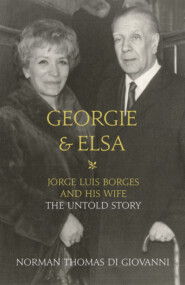По всем вопросам обращайтесь на: info@litportal.ru
(©) 2003-2025.
✖
The Silenced
Автор
Год написания книги
2019
Настройки чтения
Размер шрифта
Высота строк
Поля
He put his hand against the concrete wall, leaned forward, and took a couple of deep breaths. He caught the vomit when it was halfway up and forced it back down into his stomach. He stood there for a minute or so until the panic attack subsided. Then he straightened up and felt across the wall with his hand. His fingers nudged the circuit breaker and he turned it. A mechanical click echoed off the concrete walls of the tunnel and a sequence of fluorescent lights flickered slowly to life.
What if this is a trap? What if someone’s waiting for you out there? Someone who wants revenge.
Sarac stopped. He’d had time to think through that scenario over the past few days. That and a handful of others. The possibility that his secret pen pal, the man calling himself Frank, didn’t actually exist. That everything, the letter and photographs alike, was a fabrication intended to lure him from his hiding place. But for some reason during their brief correspondence he had become convinced that this wasn’t the case. Besides, he had managed to persuade Eskil to take a surreptitious photograph of Frank, and had studied it carefully on the cracked screen of the nurse’s phone.
Frank definitely existed. What he said was true. Someone had managed not to face up to his responsibilities so far. Had bought himself free from guilt. Had saved his own life and career by betraying Sarac.
Justice.
That was why he was now heading, for the first time in several months, out into the wide world. Exposing himself one last time to the frightening world that he no longer felt able to deal with.
Even if he was wrong, if all this turned out to be a trap after all and Frank or someone else was waiting out there in the darkness to kill him, then they’d only be doing him a favor.
He put his hand in his pocket and closed his fingers around the bag of pills. Twenty-five of them now. Enough for him to pull the emergency cord whenever he wanted to.
It took him seven minutes to make his way through the tunnel and climb up the steps to the boiler room at the other end. The combination of the exertion and the heat in there left him drenched in sweat. He hesitated a few seconds before cautiously nudging the door open. To his left lay the main building and the illuminated yard that he had just passed beneath. To the right was the staff parking lot, and beyond that the security lodge and main gate. Twelve minutes had passed, in another three the change of shift would be over.
He inhaled the cold evening air and tried to focus. Felt the slight tremble in his muscles that told him that the rush of adrenaline that had brought him this far was ebbing away. But he was almost there now. All it would take was one last burst of effort.
The car was exactly where Eskil had said it would be, all he had to do was open the unlocked trunk and crawl inside. Close it and make himself as comfortable as he could in the dark. Exhaustion took over his body, his head.
The picture of the attractive family popped into his mind again, then the dead woman on the hood of the car. They were replaced in turn by pictures of a dark forest where the flare of guns firing flashed among the trees.
Are you really sure about this, David? the voices whispered.
* * *
Julia was about to fetch her last cup of coffee for the afternoon from the unit’s staff room when her cell phone started to buzz. She answered with the phone clamped between her ear and her shoulder as she poured coffee into a chipped mug. For a moment she thought about being nice and getting a cup for Amante, then realized that the phone call gave her an excuse not to. She could carry only one mug back with her.
“Hello, this is Katarina Lindgren from the National Forensics Lab.”
Julia took hold of the phone with her left hand, then, with the mug in her right hand, started to walk back toward her office. She passed the closed door to the little cubbyhole that had been found for Amante. A claustrophobic, windowless room that was probably meant to be a janitor’s closet. But he hadn’t complained so far. Another tentative point.
Before her lunch with Wallin the day before, she had put Amante to work calling everyone who lived near where the body was found; there weren’t too many. The number of permanent residents with an open view of the water was limited to four or five, and she strongly doubted that any of them would have anything to contribute. But a murder investigation was in part just a long list of things that needed to be checked, whether or not you actually thought they might turn out to be useful. And, usefully, the task was a way of keeping Amante occupied. Pärson had decided not to let her have more detectives until they had something to go on. He had blamed the summer holidays and the fact that they had other cases that were higher priority. In fact he was actually counting on her managing on her own, so that he would later be able to report good results to his boss.
“I’m calling about the unidentified body that was found in the water at Källstavik,” the woman on the phone said. “I saw a note that you wanted to be informed the moment we found anything.”
“Absolutely.” Julie closed the door behind her, shutting out the voices of those of her colleagues who were already on their way home.
“We’ve found a match in the DNA register …” the woman began.
Julia put her cup down a little too hard, spilling some of the contents on the pale wood of the desktop.
“… but I’m afraid I can’t say much more than that.”
“No?” Julia slipped onto her chair.
“There’s a match in the register, referring to another case. It’s not a complete match, just sixty-five percent compared to the usual ninety-nine. The sample we received was badly degraded. What that means is—”
“You’ve matched it to DNA that was found in another case, but never identified,” Julia interrupted.
“Exactly. All I get on the screen is the fact that there’s a match in the register, the percentage of the similarity between the samples, and the number of the case in which the other sample was found.”
Julia got hold of a pen and paper. “Would you mind giving me the number?”
She wrote the digits and letters down, one by one, then stared at the familiar combination.
“Skarpö,” she said. As much to herself as to the woman on the other end of the line.
Her brain was working at high speed, already starting to process the consequences of what she’d just been told. But she still forced herself to ask one more time:
“Just so I know I’ve got this right. Our dismembered body was present at the shoot-out on Skarpö?”
“That’s certainly what the DNA sample suggests. The match came through a few minutes ago. I’m new here, so I don’t really know what the procedures are, but I thought you’d probably want to know as soon as possible. I mean, there’s been a lot in the papers and everything.”
“You did exactly the right thing. Thanks very much for letting me know.”
“No problem.”
Julia ended the call. And realized that she was smiling. A line of inquiry, she thought. For a moment she imagined herself as a sniffer dog with its nose pressed to the ground.
And what a line of inquiry …
* * *
Sarac cautiously opened the door to his apartment. He breathed in the stale air with its smell of newly constructed Ikea furniture. Then he took a long stride across the heap of advertisements and newspapers, snuck in, and lowered all the blinds before switching on the weak lamp above the stove. He rubbed his hands together, trying to get some warmth back into his frozen fingers.
Even though it was his home, the apartment filled him with unease and he had to sit down and take a few deep breaths to control his anxiety—the new and deep-rooted varieties alike. He was safe there, he told himself, at least for a few hours.
Everything looked just as he remembered, yet he was still convinced that the apartment had been painstakingly cleaned. That anything suggesting that he was anything other than the heroic police officer David Sarac had long since been removed.
The clock on the microwave said 14:50, which meant that at best he had about three hours before the staff in the nursing home realized that he’d escaped, and maybe as long as three and a half hours before the news reached the right people. Not long, but long enough.
The envelope containing his passport, banknotes of various currencies, and the credit card he only used when traveling was still in the bottom drawer of his desk. He breathed a sigh of relief. The people who had cleaned his apartment obviously didn’t think he was likely to want to run. He could hardly blame them. Only a few days ago he hadn’t even wanted to go outside. That he had managed to handle the train journey to Stockholm was largely because Eskil had given him a healthy dose of tranquilizers that had protected him against the sounds, the lights, and, not least, the voices in his head.
In the pantry he found a packet of ramen noodles. As the water boiled he emptied the pockets of his borrowed clothes and put the train ticket, key ring, and bus pass on the kitchen table. Then, finally, the bag of sleeping pills.
He undressed and stuffed the clothes into a plastic bag he found under the sink. There were surveillance cameras at the Central Station that he hadn’t been able to avoid. It wouldn’t take long for them to find him. And police photos showing what he looked like. He dug out a pair of black jeans and a cotton shirt from his wardrobe. They were both too big, reminding him of how much weight he had lost. He ate the noodles straight from the pan, then washed down another tranquilizer with tap water. Oddly enough, the food tasted considerably better than anything he had eaten in the nursing home.
When he had finished he washed everything up carefully and put the trash in the bag containing the clothes. He was planning to dump it in a bin by the entrance to the subway, so that at least there wouldn’t be any visible evidence that he had been in the apartment.
In the back of the hall cupboard he found a padded jacket and a black knit hat. Just as he had hoped, his own clothes made him look different. Just an ordinary Swede on his way to work.
He put the things on the kitchen table in his jacket pockets, turned out the light, and then slowly peered behind the blind. Everything looked quiet outside. He couldn’t help glancing at the windows opposite. That was where they had watched him from last year. Waiting for his next move.
All your doing, your fault, the voices whispered.
* * *











